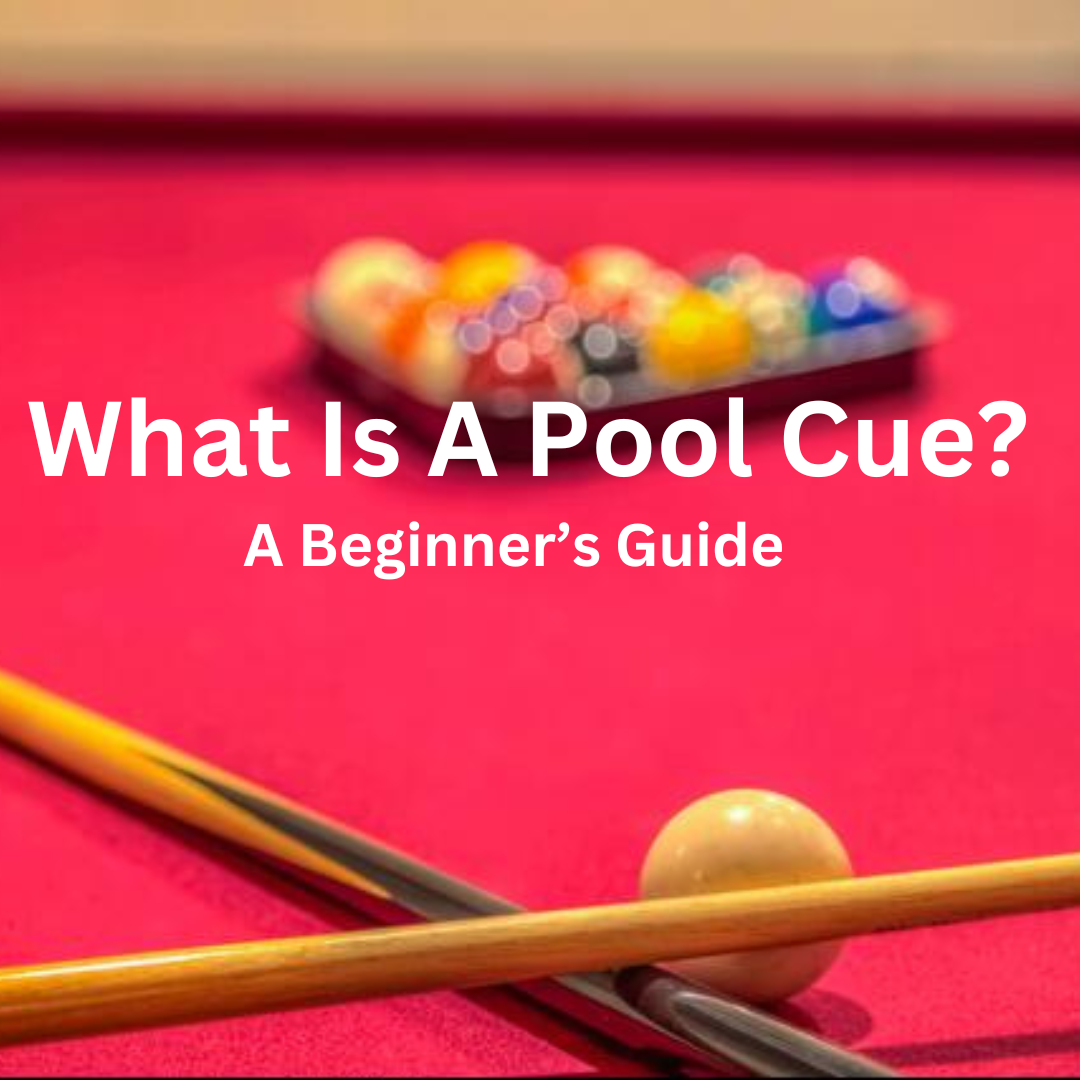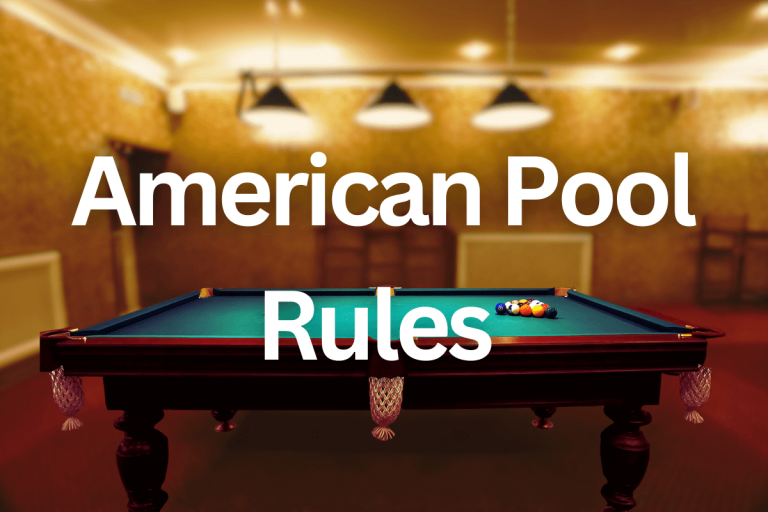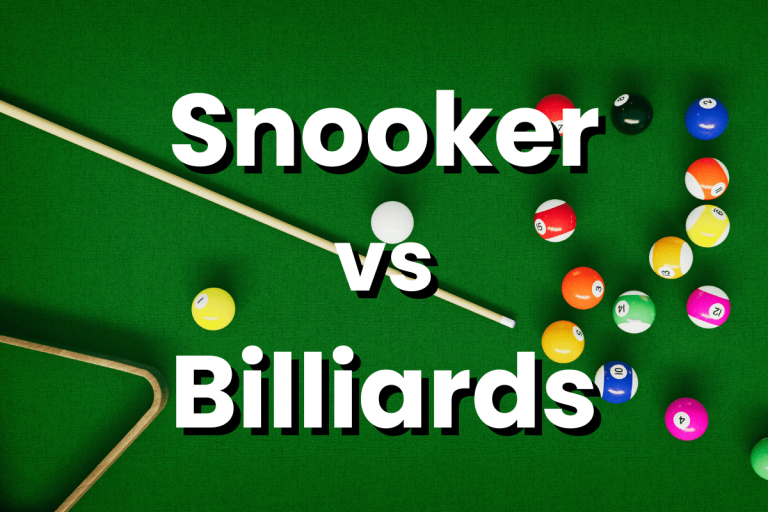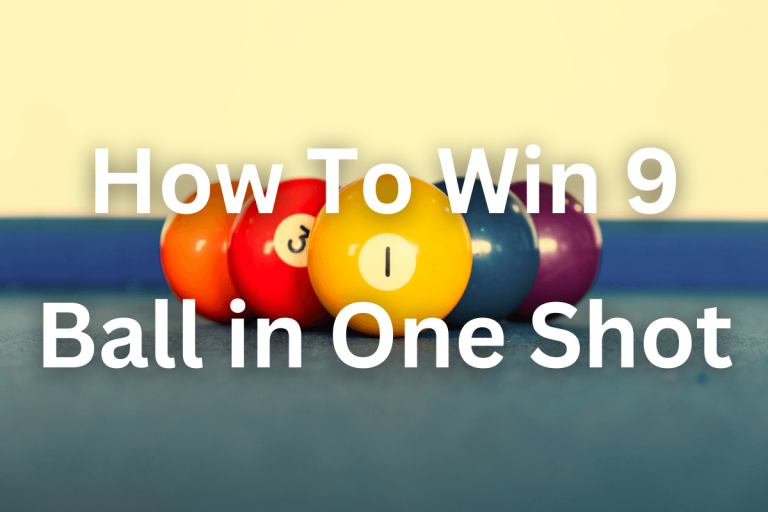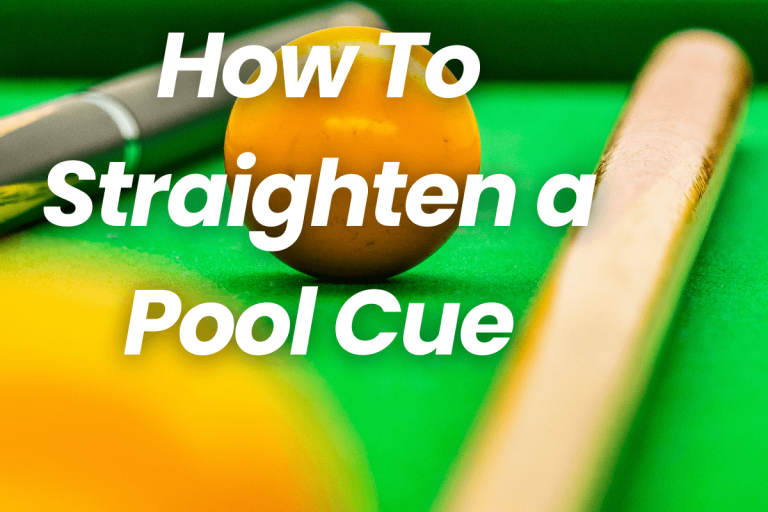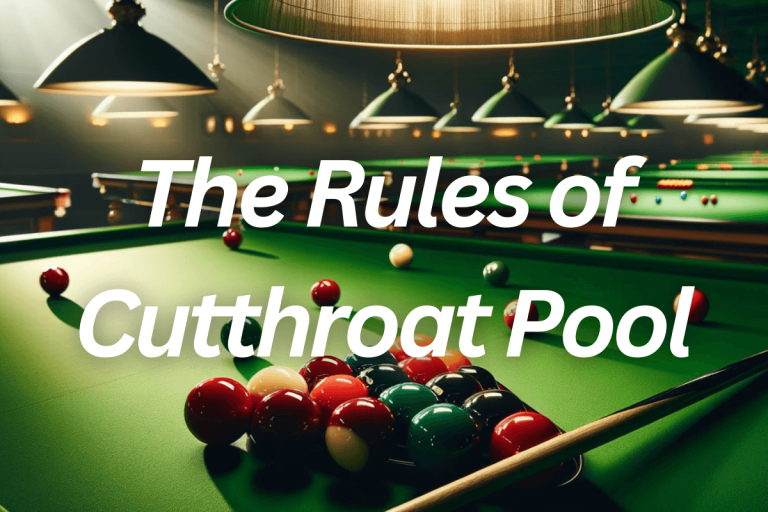What is a Pool Cue? A Beginner’s Guide (2024)
If you’re new to the world of billiards or pool, you might be wondering what is a pool cue. A pool cue, also known as a billiard cue, is a sporting equipment used to strike the balls in games of pool, billiards, and snooker. which is the white ball that all other balls are played off of. Pool cues come in a variety of sizes, weights, and materials, so it is important to choose one that is right for you.
What is a pool cue?
A pool cue is a long, tapered stick used to strike the cue ball in the game of pool. It is made up of three main parts: the butt, the shaft, and the tip.
- The butt is the thickest part of the cue and it is what you hold onto. It is typically made of wood or composite materials.
- The shaft is the long, thin part of the cue that connects the butt to the tip. It is typically made of wood or carbon fiber.
- The tip is the small, leather-covered end of the cue that makes contact with the cue ball. It is typically made of leather or synthetic materials.
The importance of choosing the right pool cue
The right pool cue can make a big difference in your game. A cue that is too heavy or too light can make it difficult to control, and a cue with a bad tip can make it difficult to generate spin.
When choosing a pool cue, it is important to consider your individual needs and playing style. If you are a beginner, I recommend starting with a basic cue that is not too expensive. As you improve your skills, you can then start to experiment with different cues to find one that best suits you.
Here are some factors to consider when choosing a pool cue:
- Weight: The weight of the cue will affect how it feels in your hand and how much power you can generate. A heavier cue will be more stable, but it can be more difficult to maneuver. A lighter cue will be easier to swing, but it can be less accurate.
- Length: The length of the cue will affect your reach and how much control you have over the cue ball. A longer cue will give you more reach, but it can be more difficult to maneuver. A shorter cue will be easier to control, but it can be less accurate for long shots.
- Tip size: The size of the tip will affect how much spin you can generate. A larger tip will generate more spin, but it can also make it more difficult to control the cue ball. A smaller tip will generate less spin, but it can be easier to control the cue ball.
- Materials: Pool cues are made from a variety of materials, including wood, carbon fiber, and fiberglass. Each material has its own unique properties that can affect the feel and performance of the cue.
How to care for your pool cue
To extend the lifespan of your pool cue, it is important to take care of it properly. Here are a few tips:
- Clean your cue regularly with a soft cloth.
- Avoid leaving your cue in direct sunlight or extreme temperatures.
- Store your cue in a case when you are not using it.
- Replace the tip of your cue regularly, as it will wear down over time.
Different types of pool cues
There are many different types of pool cues, each designed for a specific purpose. Here are a few of the most common types:
- Break cues: Break cues are designed for generating power. They are typically heavier and longer than other types of cues.
- Jump cues: Jump cues are designed for making jump shots. They are typically shorter and lighter than other types of cues.
- Snooker cues: Snooker cues are designed for the game of snooker. They are typically longer and thinner than other types of cues.
The history of pool cues
The history of pool cues is long and complex. The earliest pool cues were made from wood, and they were typically quite short. As the game of pool evolved, so did the design of pool cues. Today, pool cues are made from a variety of materials, and they come in a variety of sizes and weights.
Conclusion;
So, there you have it! A beginner’s guide to pool cues. I hope this article has helped you learn more about this essential piece of pool equipment. Remember, the right pool cue can make a big difference in your game, so take your time choosing one that is right for you. And don’t forget to take care of your cue properly so that it will last for years to come.
FAQs
1. What is the difference between a pool cue and a snooker cue?
A pool cue is typically shorter and lighter than a snooker cue. Pool cues are also typically made from wood, while snooker cues are often made from carbon fiber. The weight and length of a cue can affect how it feels in your hand and how much power you can generate.
2. Why is the tip of a pool cue important?
The tip of a pool cue is the part that makes contact with the cue ball. It is made from a soft material, such as leather or synthetic, that helps to create friction and generate spin. The size and shape of the tip can also affect how much spin you can generate.
3. How do I know what weight pool cue is right for me?
The weight of the pool cue is a matter of personal preference. Some players prefer a heavier cue for more power, while others prefer a lighter cue for more control. You can experiment with different weights to find what feels best for you.
4. How do I know what length pool cue is right for me?
The length of the pool cue is also a matter of personal preference. A longer cue will give you more reach, but it can be more difficult to maneuver. A shorter cue will be easier to control, but it can be less accurate for long shots.

